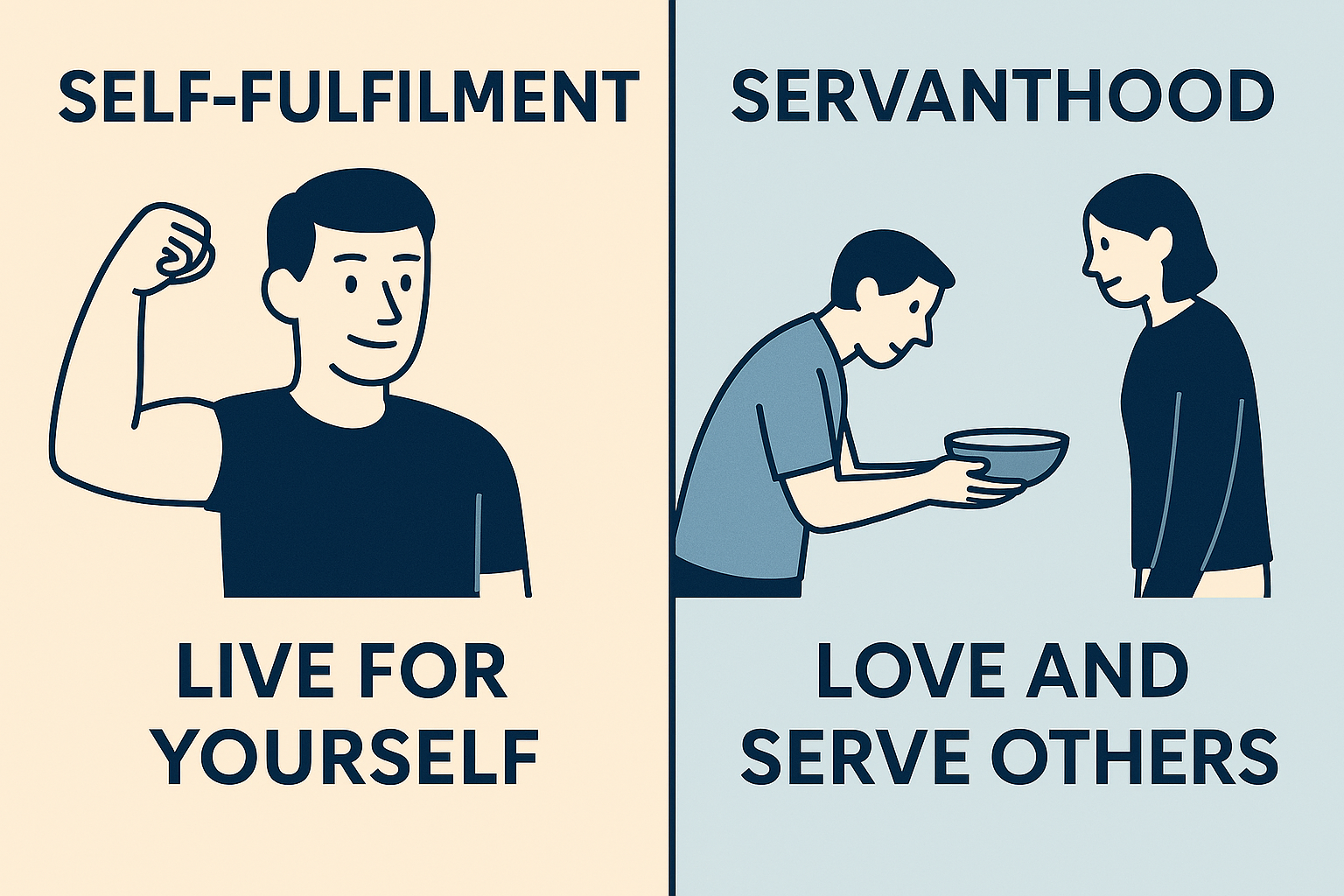"So whether you eat or drink or whatever you do, do it all for the glory of God" - 1 Corinthians 10:31
We're onto the last part of our Every Good Endeavor series: The Gospel and Work.
We live in a world saturated with stories. Every person, every culture, every institution operates from a narrative–a framework that helps make sense of life. These stories shape our emotions, our actions, and even our work.
Think back to 9/11. Two dominate storylines emerged: one blamed America's imperial overreach, the other saw the attack as hatred toward a free and good nation. Each narrative led to vastly different responses. The story you believe determines how you live.
If you get the story of the world wrong–if you believe life is primarily about self-actualization and personal fulfillment–you will misinterpret your purpose and misdirect your work. But the gospel offers a better story!
Stories and Worldviews
Every meaningful story answers three questions:
- How are things supposed to be?
- What went wrong?
- What will make things right?
These questions form the backbone of a worldview, which is a master narrative that interprets all of reality. Everyone knows the world is broken. Poverty, war, injustice, and suffering are undeniable. But what causes this imbalance? Who's to blame? What's the solution?

We are wired to chase stories that promise restoration. We want to believe the world would be better if more people lived like us. But the gospel challenges this impulse. It teaches that the meaning of life is to love God and love our neighbor, and that servanthood (not self-fulfillment) is the operating principle.
The Gospel vs. Other Worldviews
Most worldviews answer the three big questions by pointing fingers–blaming systems, groups, or ideologies. The Christian worldview on the other hand locates the problem not in any part of creation, but in sin itself: our broken relationship with God.
The gospel story unfolds as follows:
- Creation: God made a good world.
- Fall: Sin ruined that goodness.
- Redemption: Jesus paid the infinite cost to redeem it.
- Restoration: One day, God will renew all of creation, ending suffering and restoring peace, justice, and joy.
This story reshapes everything, including our work. It affirms the character of God, the goodness of creation, the value of humans, the fallenness of all things, the priority of love and grace, the importance of justice and truth, and the hope of redemption.
The Gospel and Business
Every field of work is influenced by competing worldviews and their idols. In business, money and power often become ultimate things. Corporate profits and influence, when stewarded wisely, can serve good ends; however, they are not our identity, salvation, or source of security.
The Christian worker is free to honor God, love neighbors, and serve the common good through work. Good leaders balance the interests of all stakeholders: shareholders, customers, employees, suppliers, and the community.
While the marketplace often assumes that maximizing profit is the highest goal, Christian workers must apply the counter-narrative of the gospel. From the outside, a gospel-shaped company may look similar to any well-run business. But inside, the differences can be profound–ethics are pursued even at the cost of margin.
The Gospel and Journalism
Even journalism is shaped by worldview. What gets reported, and how, is driven by values and assumptions. The best journalists strive for objectivity, but every editorial decision reflects a narrative about what matters and who's to blame.
Christian journalists, shaped by the gospel, can be more even-handed. The gospel doesn't idolize or demonize any part of creation. It allows for open-minded reporting that resists the human impulse to assign blame. In crisis, the gospel invites us to look deeper than cause-and-effect.
The Gospel and Higher Education
Higher education often perpetuates elitism. The meritocracy teaches that those who get into top schools deserve their status, while others are left behind. This breeds smugness and self-satisfaction.
But the gospel reminds us that all wealth, talent, and power are gifts from God. They are not earned but entrusted. Christian students and educators must resist the pride of merit and embrace humility and stewardship.
The Christian Worldview Shapes All Work
Living from a gospel worldview doesn't mean constantly talking about Christian doctrine at work. It doesn't mean Christian musicians only play worship music or Christian writers only write conversion stories.

Instead, the gospel is like a pair of glasses through which we see everything. It shapes how we serve individuals, society, our field, and how we model excellence and witness to Christ.
Ask yourself:
- How can I serve people through my profession?
- How can I contribute to society?
- How can I elevate my field?
- How can I model competence and excellence?
The gospel gives us a new story for work. One that brings meaning, purpose and hope to everything you do.




